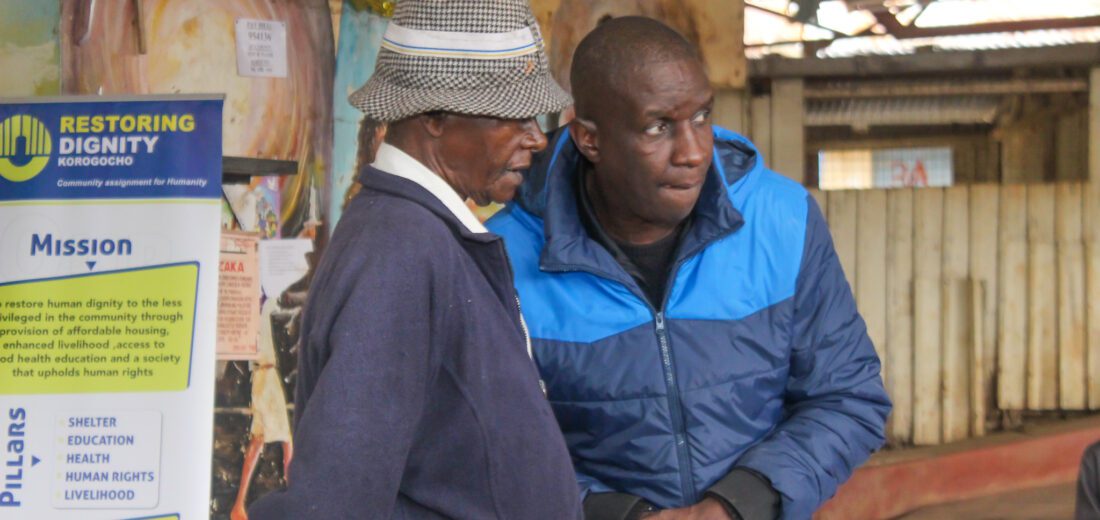
Building Hope Brick by Brick: MC Toothbrush Mission of Compassion.
In a world often overshadowed by self-interest and competition, encountering genuine philanthropy is akin to discovering a rare gem amidst the clutter. However, one person who stands out for his unwavering commitment to giving back is Fredrick Ogolla, fondly known as MC Toothbrush. He has become a beacon of hope in Nairobi’s Korogocho informal settlement by going all out to put lasting smiles on the faces of those who need it most.
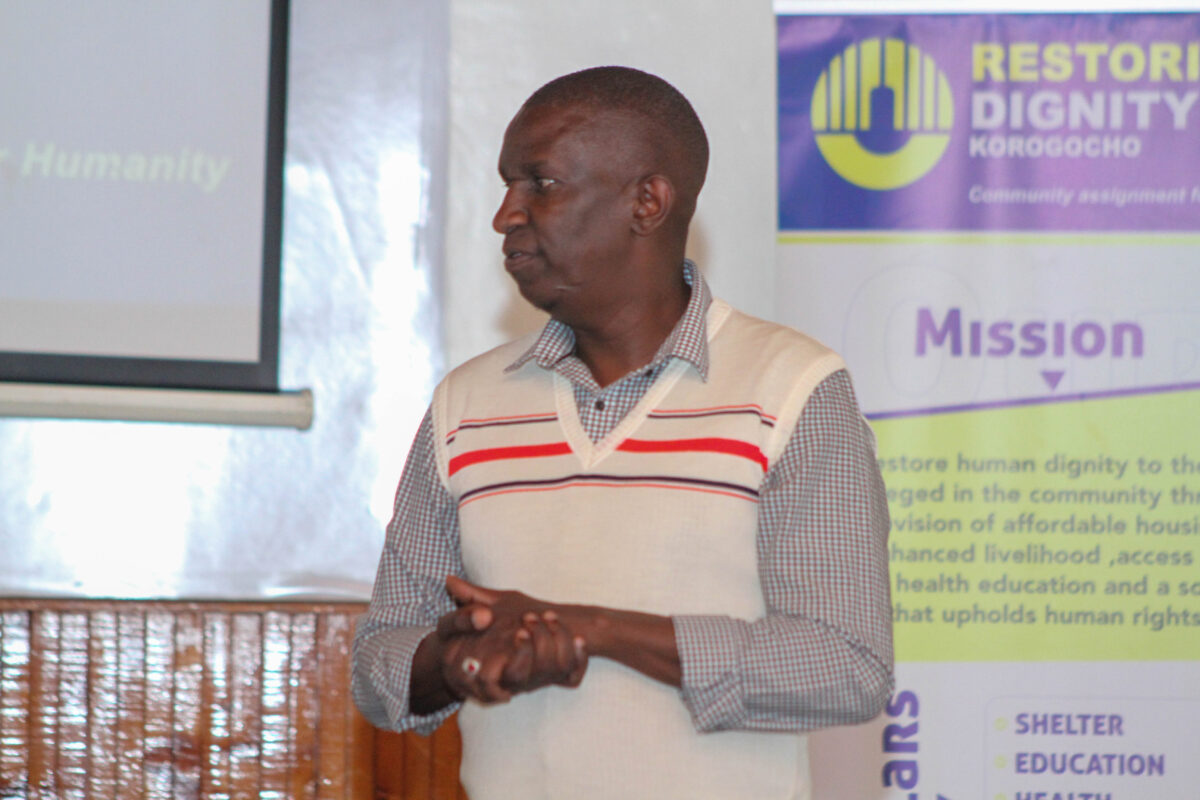
I went to the offices of Restoring Dignity Foundation, on a sunny Monday afternoon. I was excited to meet the subject of this tale, so I barely noticed the scorching sun, rough terrain, rusty shanties, and crowded roads. The person I was about to meet was a rare philanthropist, one among a notable few on this side of the earth.
Fredrick Ogolla, also known as MC Mswaki, MC Toothbrush, or MC Toothpick, is renowned for his philanthropic efforts in the Korogocho informal settlement on the far North-Eastern side of Nairobi’s CBD. He was born into a polygamous family and grew up in this area, so he is familiar with its challenges. When he was young, he served as an altar boy in his local church. He looks back fondly on this experience as it taught him the importance of giving without expecting anything in return.
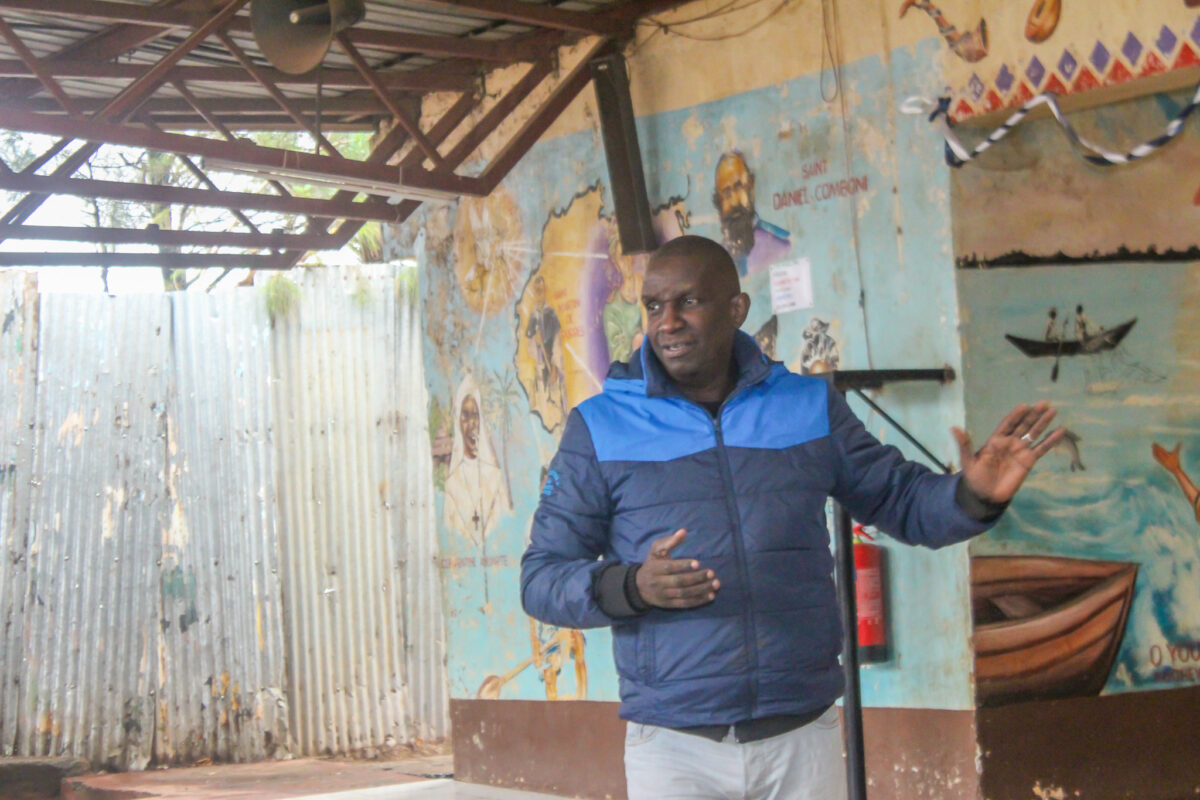
He remembers how the church was able to help the community with some of its problems, which inspired him to be more selfless in his giving. Being involved in church service also kept him away from the company of other young people involved in criminal activity at that time. “Being in church has contributed to my being alive today. The youth who engaged in crime were, eventually, killed,” he says.
Life during the pandemic
Restoring Dignity was founded during the peak of the Covid-19 pandemic. Although it was not yet operational, the team leader, Ogolla, noticed many families were struggling to access food. As we may recall, drastic measures like movement restrictions, curfews, and lockdowns were implemented during this period, leaving some households without food. The elderly and people with disabilities (PWDs) were particularly affected. He rallied the locals to chip in and alleviate the problem through food donations. The response was good, and they started distributing food to these needy cases.
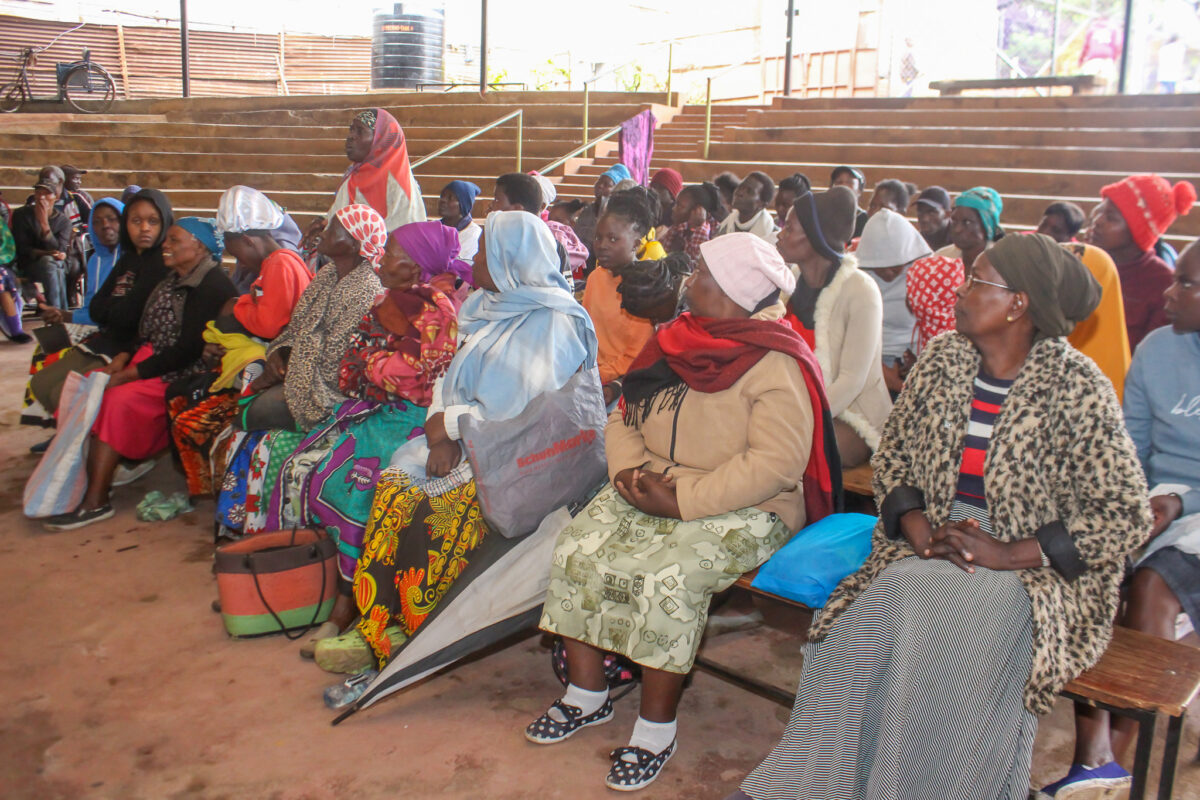
“We noticed that food was not the only problem. Other urgent issues needed addressing,” he recalls. “Shelter was a major concern, especially for the elderly.” He assembled a group of like-minded individuals and the community, especially those who had grown up in the slums but had since improved their living conditions. Together, they contributed financially and with supplies to build new homes for those living in dilapidated structures.
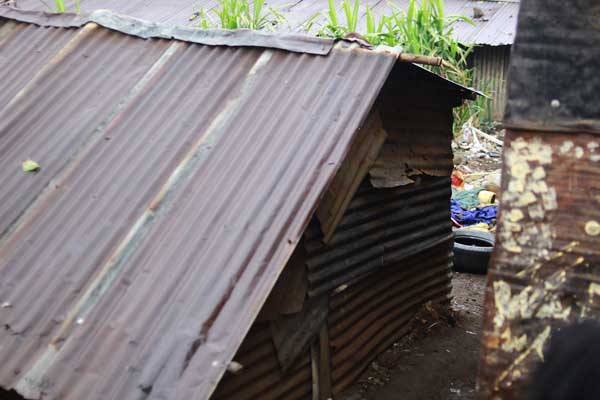
“The initiative received a positive response from the community. Youth from the area, including those reforming from crime, contributed their labor to construct seventeen houses for the elderly. We started with one house, and thanks to the hard work and dedication of the community, we were able to furnish all of them,” he shares. This down-to-earth man who had to work as a teenager – earning about KES 600 to supplement his father’s meagre income – has risen to be a beacon of hope and a symbol of successful local resource mobilization.
Local Fundraising
They have built houses relying only on local support from individual well-wishers. “No house has been built using funding from mainstream donors or through formal partnerships,” he clarifies. He notes that some of these funding options are limiting as they do not construct structures. He affirms that local fundraising is a viable option. This is particularly important as grant-making organizations are confronted with the task of diversifying their resource mobilization strategies, while also decreasing their reliance on development partners.
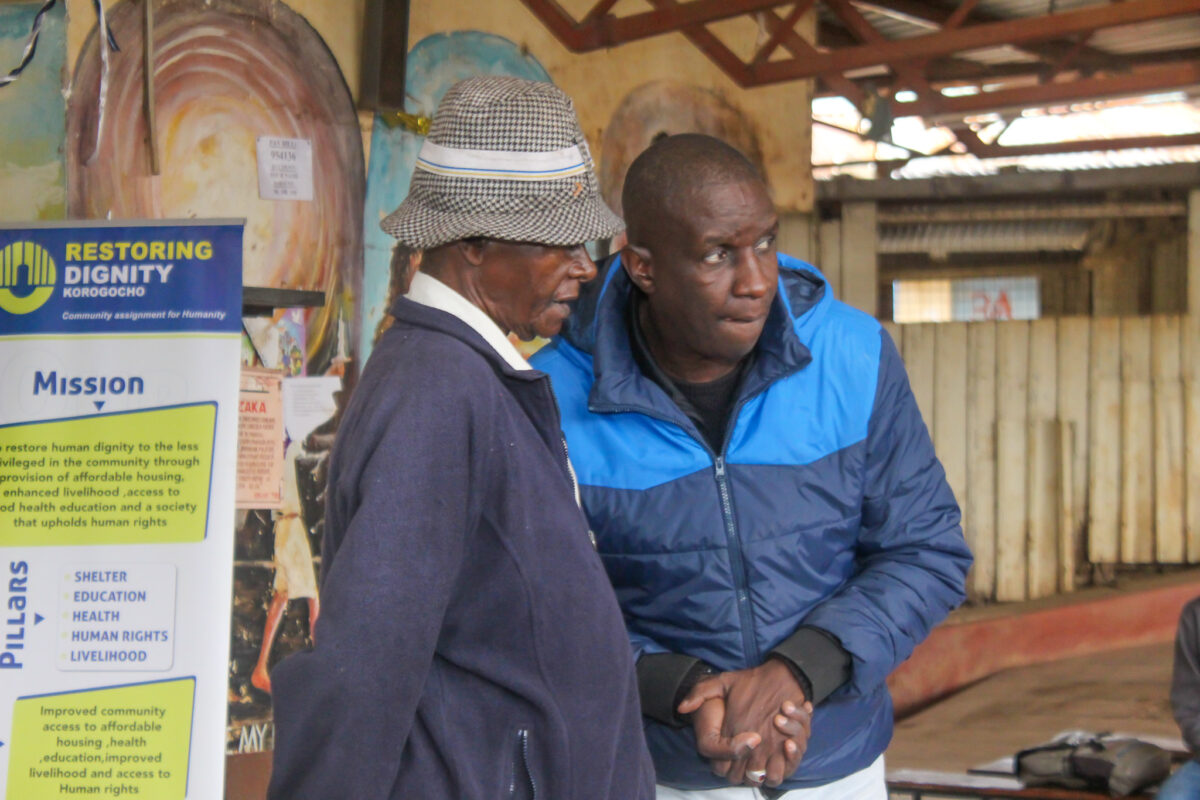
According to Ogolla, local fundraising is effective in sourcing funds for constructing homes and running other programs. Godfrey Abiero, the financial officer, confirms that Restoring Dignity addresses pertinent issues with grave repercussions. “It came to our attention that the lack of access to sanitary towels is a major contributor to the rise in teen pregnancies. Many of these young girls come from financially disadvantaged families where the breadwinners have the difficult choice of providing their families with food or purchasing sanitary towels for their daughters. The result is that the girls are left to find their means of obtaining the necessary hygiene products. This leaves them vulnerable to predators like motorbike riders who give them money to buy it in exchange for sexual favors.”
Restore Dignity started in 2020 as a response to the dire situation of lack of food, attributed to the measures taken to reduce the spread and infection of the COVID-19 virus. In 2021, it was registered as a community-based organization. After running into limitations in operation, it expanded to a foundation to enable it to build houses outside Nairobi. “A CBO certificate is limiting; one cannot operate outside the county. Yet some beneficiaries preferred to have their houses constructed in their native homelands (rural areas),” MC Toothbrush confirms.
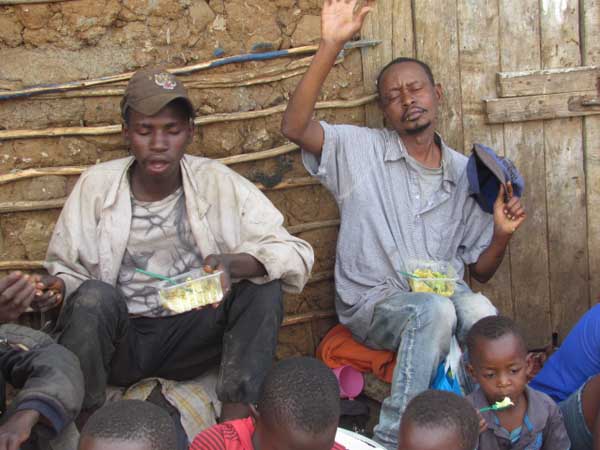
This is how an organization rooted in “community service” became an integral point of reference in this community. MC Toothbrush has proven the power of “friend-raising” (a word coined by David Odhiambo of Den of Hope. It refers to the resource mobilization from friends and people one is familiar with). So far, we have constructed 17 houses ranging from KES 600,000-700,000 – furnishing costs not included. We have also engaged 300 teen mothers in the program, with 26 already enrolled in vocational institutions. Furthermore, 47 students are part of the program, with four attending universities.
The Visionary
Ogolla, an MC of repute whose talent started in his formative years, has been part of other successes apart from being an MC in corporate events. He was part of a theatre group called 5Cs that promoted human rights using drama to agitate for constitutional reforms. He co-founded the Miss Koch initiative in 2001, which used beauty pageantry to ‘mobilize community action.’
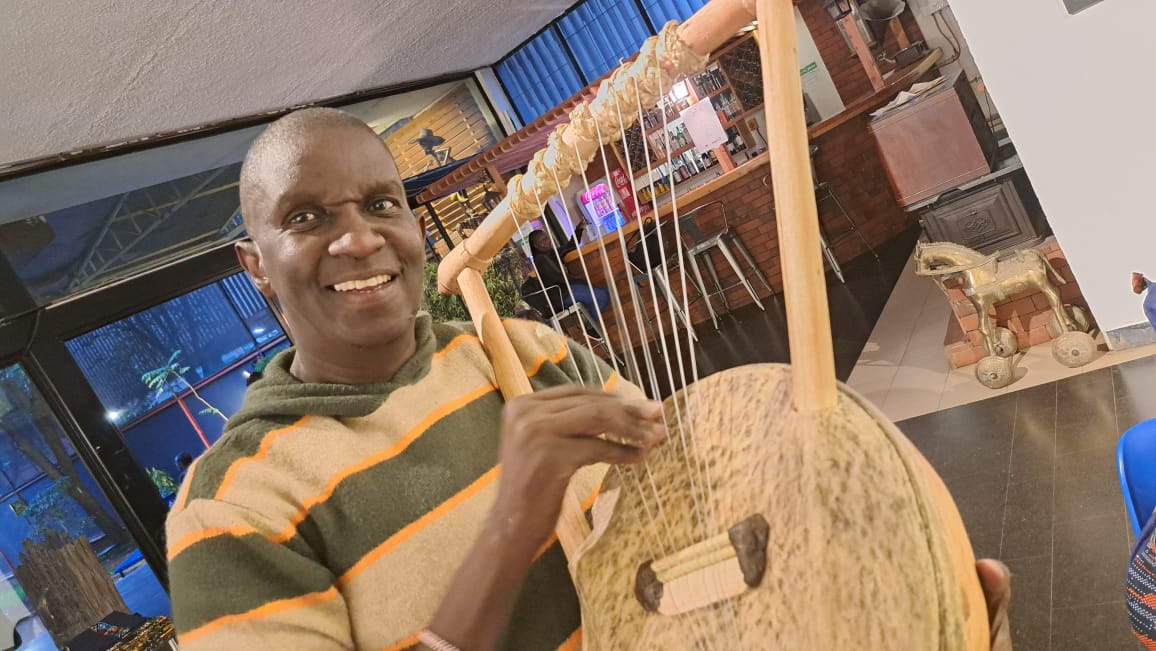
So, what drives him? “I am motivated by seeing people smile,” he states. This deep empathy for others drives him to work tirelessly to alleviate poverty and help those in need. The satisfaction he feels from making a positive impact on someone’s life fuels his motivation and keeps him going. He doesn’t seem likely to take a break from giving any time soon, as he has future aspirations.
“We plan to expand our resource Centre. We are considering trying our hand in seeking funds from traditional sources like grants from development partners,” he declares. There are plans to build two additional floors to create space for a community resource center. The Centre will provide facilities such as a community library, daycare for the children of teen mothers, who can attend classes without worrying about the safety of their children, and a safe house for individuals who need a secure space to initiate trauma healing or have survived gender-based violence.
To prove that what he has shared is true, he confirms that the land where their offices and potential resource Centre are was a donation from a community member at no extra costs. It is fascinating to see how the saying “you attract what you are” holds. Ogolla’s kindness has inspired his friends and community to join him in giving back to those in need. People contribute in whatever way they can with some donating their time while others provide in-kind donations such as furniture and utensils.
There is a Swahili proverb that says, “kutoa ni moyo usambe ni utajiri” – to give is from the heart, not out of wealth. This has been well illustrated by Ogolla, Restoring Dignity community-based organization, and the Korogocho community. They have not only restored the dignity of the beneficiaries but also restored our hope in humanity and philanthropy.

Leave a Reply